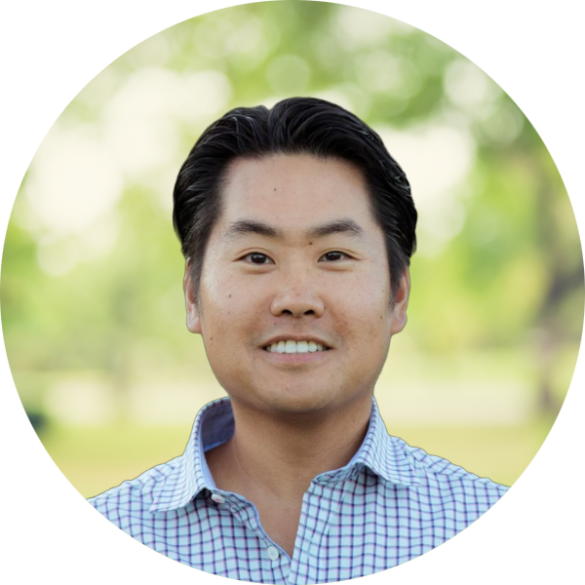This PhREI Network post is via Jordan Frey, MD at the Prudent Plastic Surgeon, and goes over the financial habits of highly successful physicians.

This post may contain affiliate links.
Editor’s note: Today’s post is from our PhREI Network partner, Jordan Frey, MD, at the Prudent Plastic Surgeon blog.
I agree with his feeling that financial education is a life superpower. A few good financial habits can mean the difference between a retirement of prosperity or scarcity. In the post below, Dr. Frey outlines 7 simple tips that can spark your own evolution into a financial success story. Enjoy!
This post first appeared on The Prudent Plastic Surgeon.
I love the idea that not sucking at money is a superpower. My superpowers are my financial habits.
It makes me feel like I’m some sort of fiscal Avenger. Now mind you, only a few months ago, I was the equivalent of pre-spider bite Peter Parker, getting shoved into lockers by financial bullies. But now I’m swinging around tall buildings and webbing the bad guys.
How did I make this drastic change? The answer is simple…My financial habits underwent a massive retooling.
Habits make you what you are. If exercise is a habit of yours, you are in shape. If eating well is a habit, you are healthy. Financial well-being is no different. Nurture your financial habits and you will become financially successful – based on whatever definition you give financial success.
When I decided to finally face my financial illiteracy and dedicate myself to financial freedom, the task seemed almost insurmountable.
There are endless amounts of material and resources. The topics are intimidating and can be complicated. We worry that making one wrong action can ruin us financially for the rest of our lives.
We can easily fall into this limiting belief that there is an invisible timer and if we don’t reach financial success by the time it goes off, we will never have another chance.
I can assure you, there is no such timer!
You can start at any point and be successful. The key is starting. After starting, the key is to keep moving forward. You cannot learn everything, take every actionable step, and reach your financial goals in one day, or one month, or even one year.

This is a marathon, not a sprint
The best way to approach your financial well-being is by forming healthy habits that continuously strengthen your financial muscles and help you to make the right financial decisions. These habits are formed through daily practice that becomes ingrained.
That’s how I did it when I faced my financial fears and intimidation, determined to overcome my past mistakes and create a life of financial freedom. I focused on small, achievable daily habits that over time would yield massive gains in financial education and inspire massive actions towards financial well-being.
These marginal habits and gains will lead you to achieve your BIG financial goals!
1. Read at least one financial blog entry every morning
It’s #1 for a reason. This was the first of my financial habits and really got me going.
Every morning, I wake up around 5 to 6 A.M. depending on my schedule. With breakfast, I read one financial blog piece. I do not have a set list of topics to cover or any sort of formal curriculum. I simply pick a blog, find the most recent post on that site, and read it.
Some days, the topics are very technical and take a lot of time and thought to get through. Other days, the topics are more philosophical and lighter. Sometimes, the topics are ones that I am very familiar with. Other times, they are very niche and new to me.
Regardless, without fail, I learn something new.
When I first started, it was like drinking from a fire hose. I constantly had to Google terms to see what they meant and had to sit and digest many concepts before I could move on. Now, most posts are on familiar topics and I can read through them fairly seamlessly. But I am still learning every day.
Pick a few blogs that resonate with you and subscribe to their email lists. You will receive an email with each new post. Read at least one each morning when you wake up.
Not a morning person? Read them in between patients in clinic or OR cases. Read them while you eat lunch. They generally should not take more than 5-10 minutes to read.
2. Check your accounts and follow your money
I check my checking account every day, usually at the end of the day when things are winding down.
This may seem obsessive but it serves a very important purpose. I know from experience.
When I was a trainee, my apartment rent was always due at the end of the month. I would log into my bank account on the last day of every month and hold my breath that we had enough to pay rent. We usually did but sometime just barely so. (Remember, I lived in NYC with 2 young kids and a subsidized apartment with rents equal to 75% of my income!) Then, the next month would start, I would get my paychecks and spend until the cycle repeated at the end of the month.
What a terrible habit! This makes your checking account a slush fund. It becomes so easy to spend money without a conscience.
By checking my money every day, I get immediate feedback as to what our daily expenses are. Discuss anything that seems off.. What expenses are adding up even though they seem small initially? What monthly subscriptions are stacking up even though we don’t really use them? Do we need to adjust our spending? Could we be saving more?
All of a sudden, there are no surprises and you have control over your money again. Make checking and following your money a habit.
Savings and investment accounts don’t need to be checked as often since they are not as fluid. But I recommend checking on your savings account every month as positive feedback for maintaining your (at least) 20% savings rate.Check your investment accounts even less, likely only once or twice a year to rebalance according to your written financial plan.
3. Invest in the margins of your life
I’ve discussed this idea previously.
You don’t miss money that you didn’t know was there. For instance, if someone took $20 out of every paycheck, you probably would never notice. You would live your life and intuitively just spend $20 less each time.
Take this phenomenon further and put some saving money aside with each purchase that you make on a daily basis.
I just started using an app called Acorns. Basically, the way it works is that for every purchase you make, Acorns will round up to the nearest whole number and save the change. Example, you buy a sandwich for $4.75. Acorns will set aside $0.25 from your account. This extra “change” goes into a a broad, low-cost index fund portfolio of your choice and invested for you.
It might seem like this doesn’t add up. But it does. Go back in your last month’s bank statement. Add up all the spare change. You’re a high income earner. I bet it was a decent amount.
Now combine that with a $20 weekly recurring withdrawal to your Acorns account and a multiplier (2x, 3x, your choice) for each spare change withdrawal and your investment account will build up quickly.
I just started mine a little bit ago and already have about $500 in my investment account (I use a 2x multiplier and weekly $20 recurring withdrawal). At this rate with a modest 6% yearly interest, my spare change fund will grow to above $110,000 in twenty years. Likely it will be much higher.
Not bad for spare change.
4. Read one chapter (or ten pages) in a financial book each night
Before bed, I used to watch about 10-20 minutes of Netflix before falling asleep. I now keep a book at my bedside and read about one chapter each night before going to bed. Sometimes a little more, sometimes a little less. But without fail, I read before going to bed.
Some of these are long books that might take me a month to read if I follow an average of ten pages. However, I have easily read over 10 financial books in the past couple of months using this method.
Heck, sometimes I find myself going to bed earlier than I otherwise would just to get in some extra reading time. Other times, I’ll be exhausted so I’ll only read one page. It seems ridiculous, but this maintains the habit. Skip one day and it’ll become easier and easier to skip the following days.
I used this same strategy to study for the yearly in-service exam as a trainee. Everyone would always be cramming the week before the test. I just read 10 pages of a review book every day starting at the beginning of the year and was prepared without stress by exam day.
Start with a manageable book and just commit to reading the introduction on the first night. I would be willing to bet that you get hooked and are reading much more in depth financial treatises in no time.
Books are very cheap investments that will yield you extraordinary returns on your financial literacy and actual net worth.
The last 3 books I’ve read are:
- Rich Dad, Poor Dad Cash Flow Quadrant by Robert Kiyosaki
- The Doctors’ Guide to Navigating a Financial Crisis by Cory Fawcett
- The Doctors’ Guide to Eliminating Debt by Cory Fawcett
5. Read your financial goals
When you write your personal financial plan, you should have a section where you list your financial goals.
My financial goals are as follows:
- Pay off consumer debt in 2 years (2022)
- Pay off student debt in 5 years (2025)
- We will be worth $1 million in 12 years (2033)
- Save $40,000 to buy car 1 in 3 years (2023), save $40,000 to buy car 2 in 6 years (2026)
- Save enough to cash flow at least $250,000 in retirement (goal retirement at least 2045)
- This will be via hybrid approach using equity and real estate investing
- Save $1-2 million in equities for 4% yearly withdrawal of ~$71,000
- Cash flow >$200,000 from real estate investments in 5 years (2025)
- Save $400,000 for Samuel/Emery college
- Save $250,000 for renovation/down payment new home
- The mortgage on the home we are living in will be paid off when we retire
I try to read these goals on a daily basis. Sometimes in the morning, sometimes at night. Again, it may seem obsessive, but this keeps my mind actively focused on these goals.
It’s easy to lose focus of long term goals within the craziness of daily life. It is often hard to do the things necessary to maintain the trajectory towards our goals. If we forget what the goals are or why we want to achieve them, they all too often fall to the wayside. Before we know it, we are completely off track.
Reading the above list of goals takes all of 30 seconds. At this point, they are essentially committed to memory and I can review them mentally in the shower each morning.
This way, I keep my eyes on the prize and don’t get tripped up by any daily annoyances that otherwise may distract me from what’s important.
6. Talk with an accountability partner
We’ve all seen that keeping up a habit is much easier when we have a partner sharing in it. It’s why we run with a buddy and start a diet with a friend. It’s why I watch the New York Jets inevitably lose every year with my dad.
This makes us accountable to ourselves and to someone else who is depending on us. It’s much harder to let someone else down. On days where we feel like quitting, we fight through for our partner. They do the same thing in return.
Find someone like-minded with a similar interest to share your journey with. They are out there, I promise. As soon as I made my interest in personal finance known, it was amazing how many of my friends and colleagues started talking to me about it. I had no idea they were interested before.
Once you identify your partner, make it a habit to talk shop with them on a daily or near daily basis. It’ll keep you moving in the right direction and your combined knowledge will grow exponentially!
My main accountability partner is my wife, but I also share with many members of my family as well as friends and colleagues.
7. Keep a checklist of financial tasks
It can be overwhelming to manage all of the financial considerations and tasks that need to be dealt with over time. Some people get so overwhelmed or frustrated over forgetting certain tasks that they give up.
I have an easy solution: keep a list that you check/update daily. This can be a physical list or a virtual list. Whatever works best for you.
I keep virtual “post-it” on my Mac computer using the Stickies app. I have different colors denote different aspects of my life and I list out the financial tasks that need to be completed, even way in the future.
This helps me keep track of everything. Then I don’t need to worry about remembering to review my monthly budget or contribute to my backdoor Roth IRA. It’s on my list and I’ll automatically be reminded as the date approaches.
Some people will prefer a physical paper list or a phone app. Whatever you use, just review it daily and update it whenever a task comes up that needs to be remembered.
By developing these financial habits, you will strengthen your financial muscles every day
These tasks should be viewed much like a budget. They are not restrictive tools or annoying “things to do” but are empowering supports, guiding you to financial freedom.
Before you know it, you will be mastering advanced financial concepts, improving your financial well-being, and taking massive action towards your financial success!
I hope you enjoyed this PhREI Network post from The Prudent Plastic Surgeon. Please comment below and subscribe for more!
Want to support the blog?
- Join our investor club at Cereus Real Estate
- Visit my Recommendations page
- Check out my wife’s food blog: Eat Dessert First
- Stay at our luxury short term rentals
- Check out my TikTok channel
- Follow me on Instagram
- Follow me on YouTube
- Contact me with questions







